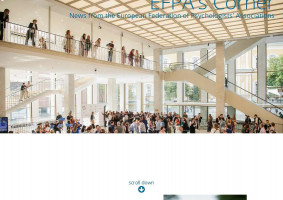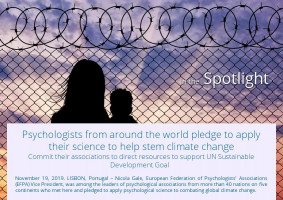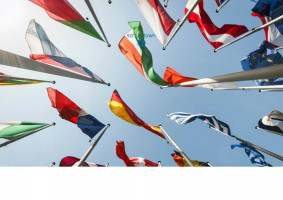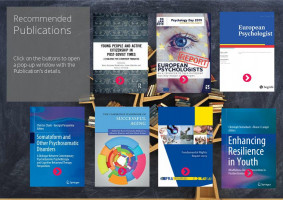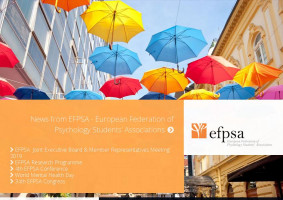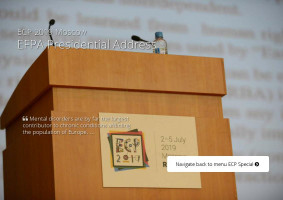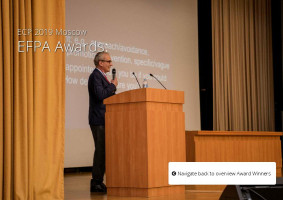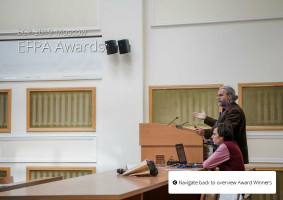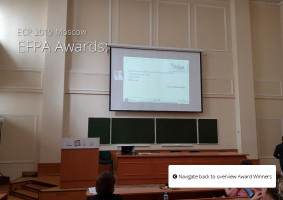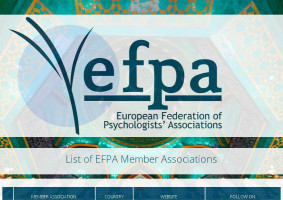Psychologists from around the world pledge to apply their science to help stem climate change
Commit their associations to direct resources to support UN Sustainable Development Goal
November 19, 2019. LISBON, Portugal – Nicola Gale, European Federation of Psychologists’ Associations (EFPA) Vice President, was among the leaders of psychological associations from more than 40 nations on five continents who met here and pledged to apply psychological science to combating global climate change.
"It was a great honour and responsibility to be invited to participate in this historic summit,” said Nicola Gale. “As the science of behavior, psychology has much to say about what people can do to help prevent and mitigate the impacts of climate change and how to develop strategies to cope. We pledged to encourage leaders in government, academia, health and business to use more psychological science in designing policies to promote sustainable preventive and corrective behaviours.”
Participants at the first International Summit on Psychology’s Contributions to Global Health issued a proclamation on collaboration , committing the 43 signatories to use their professional, scientific, educational, cultural and applied resources “to achieve progress on matters of utmost importance for which psychology offers the greatest contribution.” Their initial efforts will focus on the United Nations’ Sustainable Development Goal 13: Take action to combat climate change and its impacts.
They also signed a resolution citing the “overwhelming agreement among climate scientists that climate change poses a serious global threat, is occurring faster than previously anticipated and is contributed to by human behavior.”
Marcelo Rebelo de Sousa, president of Portugal, addressed the summit , praising the psychologists for taking on the challenge of global climate change.
“You chose the right subject because it’s a global subject,” he said. “We must have a global response to it. There is not a single country, not even a superpower, that can address alone this issue.”
During the meeting, from Nov. 14-16, participants developed plans for advocacy, media campaigns and research to meet the goals laid out in the proclamation and resolution. They agreed to continue to work together to put these plans into action in their respective countries.
Among the countries represented from five continents at the summit were, from Europe, Belgium, Germany, Norway, Portugal, Spain, Sweden, Ukraine and United Kingdom. The summit was co-presented by the American Psychological Association and the Order of Portuguese Psychologists.
For more information on the summit, visit summit website
Also on our Facebook , twitter and on EFPA website
(1)_w1516_h434_1.jpg)
_w444_h248_1.png)
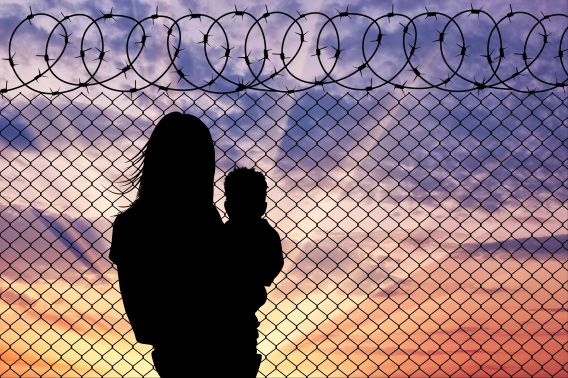
Children living in countries at war have come under direct attack, have been used as human shields, killed, maimed or recruited to fight. Rape, forced marriage and abduction have become standard tactics in conflicts from Syria to Yemen, and from the Democratic Republic of the Congo to Nigeria, South Sudan and Myanmar.
The above was stated by UNICEF in December 2018 as they concluded that the world has failed to protect children in conflict.
In 2019, the year we celebrate the 30th anniversary of the UN Convention on the Rights of the Child (CRC), the situation still remains the same for children affected by war and conflict. Children are always the ones who have the most to lose. Their childhood, their safety, their loved ones, and their lives, are all at stake.
Read the full EFPA statement on our website
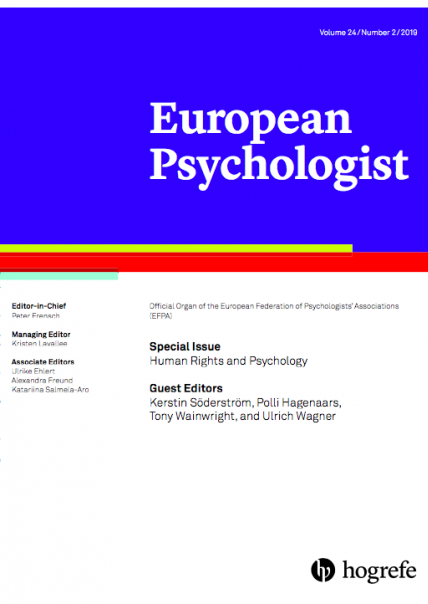
Press release:
“Human Rights matter to Psychology. Psychology matters to Human Rights”
June 14th - by Kerstin Söderström, Member of the EFPA Board on Human Rights
June 17th 2019, a special issue on Human Rights and Psychology from the European Psychologist journal is being published.
Human Rights are of crucial importance to everyone in the world, psychologists included, and in 2013 the European Federation of Psychologists’ Associations (EFPA) called for psychologists and their associations to engage more strongly in protection and promotion of human rights. Today, the call is even more urgent as we are witnessing threats and reversal of fundamental human rights in over half the countries included in the World Justice Project report for 2017-18.
In 2017, the UN Special Rapporteur on the right to the enjoyment of the highest attainable standard of physical and mental health expressed strong concerns regarding the recurrence of human rights violations in mental health settings. Stakeholders were encouraged to move towards mental health systems that are based on and compliant with human rights.
However, in order to answer to these calls, psychologists need to know Human Rights, and develop awareness and reflectivity about how, where and when fundamental rights are at stake, and bravery in action. Lack of attention to human rights in most psychology educations might leave the mutual relevance of Human Rights and psychology unexplored. This special issue illuminates why Human Rights are part of psychology and how psychology can contribute to the fulfilment of the Human Rights’ agenda.
The nine original articles cover a range of topics: children’s rights and bullying, supported decision-making and rights based approaches in dementia care, protection of refugees’ basic human rights, and the ethics and human rights crisis of the American Psychological Association. The collection of articles includes thoughtful considerations of why clinical psychology should be human rights based, prescribing a professional stance of the psychologist as a practitioner-activist, how Human Rights should be integrated in teaching professional ethics, an example of how psychologists’ associations could strengthen an explicit human rights agenda by establishing national human rights committees, and lastly, a critical theoretical discussion of the epistemological and ontological underpinnings of human rights and psychology.
The European Psychologist special issue is edited by a team of four from EFPA’s Board Human Rights and Psychology, Kerstin Söderström, Polli Hagenaars, Tony Wainwright, and Ulrich Wagner. The team expects that the collection of articles will spark interest and discussion, provide the reader with valuable insights, experiences and theoretical explorations, and play a part in developing the synergy between the two fields and their increasing integration.
"Soul, Spirit, and Consciousness in Psychology and Philosophy: Traditions, Current Views, Perspectives"
A Special Issue of European Psychologist
Guest Editors:
Ulrich Weger (Germany), Johannes Wagemann (Germany), and Michael Pauen (Germany)
Submission deadline for full manuscripts:
December 31, 2019
Click for more info
"Psychology and the Environmental Crisis"
A Special Issue of European Psychologist
Guest Editors:
Katariina Salmela-Aro, Margarida Gaspar de Matos and Tony Wainwright.
Deadline for submission of full papers is March 1, 2020
See pop-up for more infomation
European Psychologist
Upcoming Special Issues 2020
Some topics to be expected in the special issues that European Psychologist has scheduled for 2020:
“Psychology and Aging: European Perspectives”
Guest editors: Frieder Lang, Germany / Matthias Kliegel, CH / Isabelle Albert, L.
“Towards a Better Understanding and Evidence-Based Intervention Strategies for Early Responses to Trauma”
Guest editor: Birgit Kleim, CH.
“Understanding, predicting and preventing violence”
Guest editor: Carlo Garofalo, NL / Rannveig Sigurvinsdóttir, Iceland.
“Psychology of extremist political identification”
Guest editor: Catarina Kinnvall, Sweden.
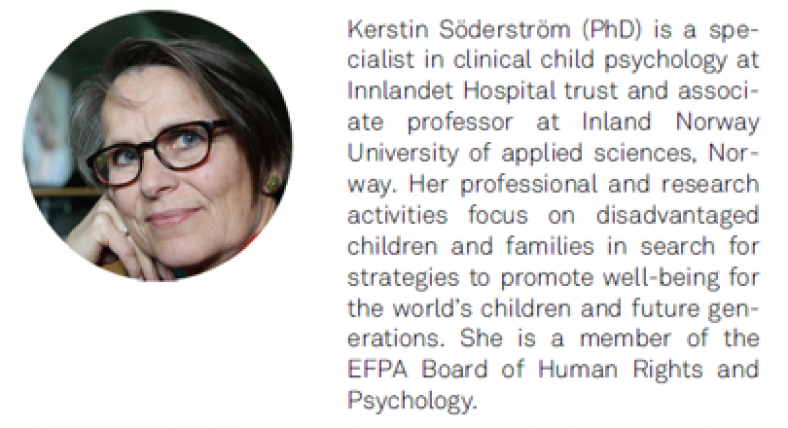
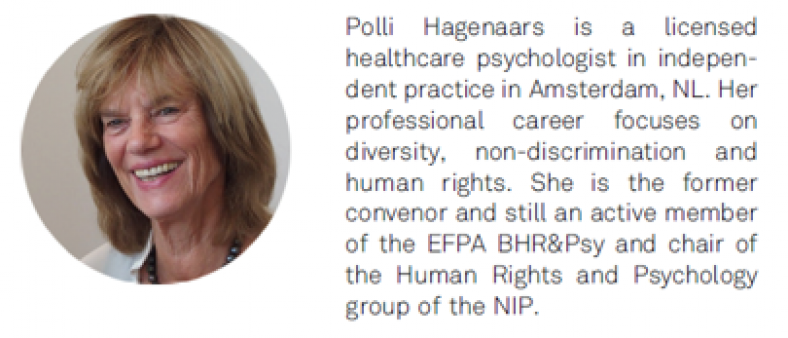
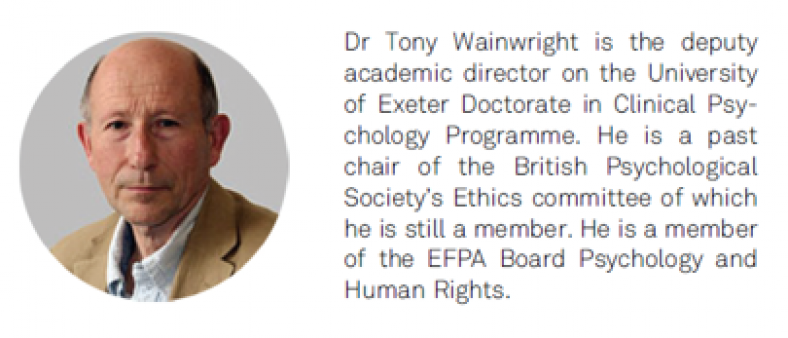
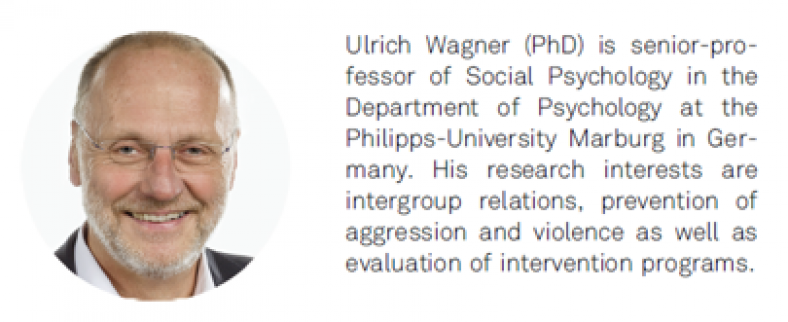
_w298_h400_1.jpg)




